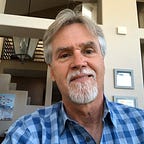Growing unrest & intolerance in society
Remembering our guiding principles
Finding our way in turbulent times
Over 70 years ago, my parents met on a blind date in Cambridge, Massachusetts. Both had come to the area for college and their best friends thought they would be an ideal match. My father was 20 years old at the time and my mother was 17. Amidst their studies, these two courted, fell in love and married three years later.
In the early years of their marriage, my parents pondered their religious beliefs and the path they wished to follow. They had been raised under different religious traditions and were not especially drawn to either of them. Through my father’s work as an educator, they were introduced to Quakerism, whose message spoke to them. They have been practicing Quakers ever since and raised my two brothers and me in this tradition.
Quakers are a Christian denomination united in the belief that there is “that of God in every one.” They are outspoken advocates for equality, non-violence, social justice, and treating all people with respect, acceptance and compassion.
Religion permeates our society. More than half of all Americans indicate that it plays an important role in their lives. “In God we trust” is embossed on our currency. Our public servants swear an oath to defend the nation and its constitution, “so help me God.” Although our country’s religious traditions vary greatly, they share many core beliefs — honesty, generosity, truth, and respect for others. Regardless of one’s religion, or whether one is religious at all, most of us would consider these to be universally valued principles.
Although I am not religious, my upbringing as a Quaker has provided guidance for how to live my life. Through this lens, I have been troubled to witness the dramatic increase in social and political unrest in our country. Many individuals are loudly expressing anger, resentment and hatred — and some have resorted to violence. Too many people are intolerant, disrespectful and fearful of others, especially those that we see as different from ourselves. Too many people are turning away from reality and truth to embrace fear-based and destructive narratives.
The roots of this turbulence in our society are incredibly complex and I do not claim to understand them fully. But the unrest clearly centers around — at least in part — persistent racial injustice, economic inequality and a growing sense of hopelessness and bitterness in diverse groups of people in our country.
It is hard to avoid concluding that we are falling short of the guiding principles espoused by the world’s many religious traditions and thought leaders. Whether or not one is religious, we might all benefit from being reminded of the teachings of Christ and other spiritual leaders: love your neighbor as yourself; show compassion to all; care for the needy; forgive others who have wronged you; love your enemies; act in accordance with your beliefs; do not judge others.
In his inaugural address, President Biden humbly offered us guidance for how to navigate the challenging times that we face in our country. He encouraged us to treat each other with dignity and respect, and to view each other as neighbors rather than adversaries. He urged us to listen to each other and try to understand people that are different from us or have different views.
In the coming years, will we succeed in following the advice of President Biden and many other leaders before him? Or will we succumb to intense tribalism, xenophobia and the demonization of groups that differ from us? I sincerely hope that the citizens of our country — and the world as a whole — opt for the former path, and that we strive to be more aware of and reflective about our actions towards others. I believe that, whether religious or not, we have all been taught a series of guiding principles by which to live. Perhaps now is an ideal moment to recommit ourselves to them and — as the Quakers say — see the light in all people.
